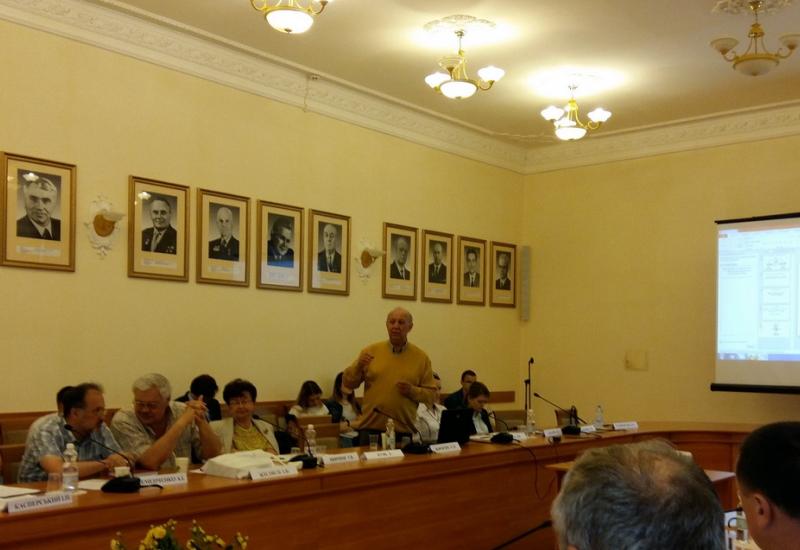The scientific and practical conference “Rights, Values and Security in the Information Sphere”, organized jointly with the Institute of Informatics and Law, was held at the Igor Sikorsky Kyiv Polytechnic Institute in May. The moderators of the event were the dean of the FSP Anatolyi Melnychenko and the first deputy director of the Institute of Informatics and Law of the National Academy of Legal Sciences of Ukraine Oleksandr Dovgan, whose report set the direction of the conference discourse.
It is extremely important for each state to announce / publish the rights and freedoms of citizens in dealing with their content, which has become an integral part of development, providing scientific, educational, engineering, technical, financial, etc. activity. The urgency of the discussed topic is due to the fact that most of the legislative acts of the information and communication sphere of Ukraine are inherited from the USSR or copied from Western models. At present, the development of national structures that provide protection of information from leakage through technical channels is underway. It is carried out in the department of cybersecurity of the SSU, the cyber police of the Ministry of Internal Affairs, the State Service of Communications. These structures consistently face many problems that require adjusting the existing administrative and legal norms for dealing with information and communication tools.
Today, in particular, the issue of “cybernetic security” that arose as a result of the functioning of computerized communication facilities and related computer technologies, registration, storage and dissemination of information in computer networks became of particular relevance. The State Service for Special Communications and Information Protection protects information in Ukraine. But the catastrophic lack of specialists for information, communication, analytical, advocacy and management and the level of their analytical work is the most critical.
The recently introduced Law of Ukraine “On the Basic Principles of Cybersecurity of Ukraine” defined the basic legal and organizational framework for ensuring the protection of the vital interests of men and citizens, society and state, the national interests of Ukraine in cyberspace, the main goals, directions and principles of state policy, in particular the field of cyber security. The imperfection of our perception of information in the area of regulatory relations with the emergence of the newest means of information processing and communication generate new threats to the stability of the state to the challenges of development in modern conditions. Solving the problems of legal and physical protection of computer information has become, today, a global and extremely difficult task for public administration. Digital methods of processing and storing information began to require the formation of more differentiated regulatory mechanisms and rules of law, from self-censorship and up to the construction of complex intellectual models of the ethics of the transmission of a particular message.
The information society we seek, in contrast to the industrial one, is more vulnerable to legal assessments and actions regarding classifications and monetary valuation of information as a resource for its development, and thus requires the full involvement of engineering and technical specialists in solving a wide range of political and legal problems of constructing adequate systems of work with information in technological realities of the modern world.
The scientific and practical conference “Rights, Values and Security in the Information Sphere” convincingly demonstrated that the study of scientific and technological problems in the development and improvement of the principles of information and communication law should be more justified, so to speak, technically, and it becomes the care of engineering and technical activities. Thus, universities become more responsible for the organization of an interesting cases fof science and education problem solving, which actualizes the study of the needs of engineering and technical education and the activities of the engineering facilities of the country, focusing on innovation activities. By the example of the leading countries, we must understand and feel the personal responsibility of each and every authority – both the citizen and the society – for making decisions.

